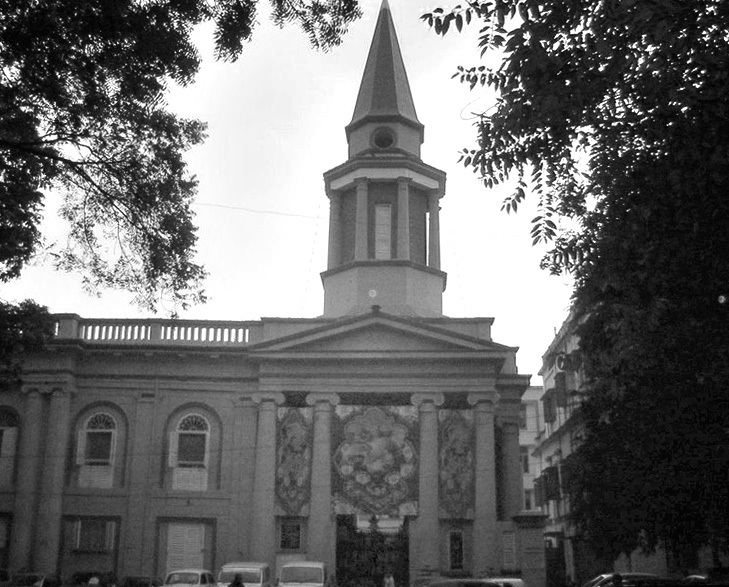Twenty-fifth Sunday in Ordinary Time
Isaiah 55:6-9
Seek the LORD while he may be found, call him while he is near. Let the scoundrel forsake his way, and the wicked his thoughts; let him turn to the LORD for mercy; to our God, who is generous in forgiving. For my thoughts are not your thoughts, nor are your ways my ways, says the LORD. As high as the heavens are above the earth, so high are my ways above your ways and my thoughts above your thoughts.
Philippians 1:20C-24, 27A
Brothers and sisters:
Christ will be magnified in my body, whether by life or by death. For to me life is Christ, and death is gain. If I go on living in the flesh, that means fruitful labor for me. And I do not know which I shall choose. I am caught between the two. I long to depart this life and be with Christ, for that is far better. Yet that I remain in the flesh is more necessary for your benefit.
Only, conduct yourselves in a way worthy of the gospel of Christ.
Matthew 20:1-16A
Jesus told his disciples this parable:
“The kingdom of heaven is like a landowner who went out at dawn to hire laborers for his vineyard. After agreeing with them for the usual daily wage, he sent them into his vineyard. Going out about nine o'clock, the landowner saw others standing idle in the marketplace, and he said to them, ‘You too go into my vineyard, and I will give you what is just.' So they went off. And he went out again around noon, and around three o'clock, and did likewise. Going out about five o'clock, the landowner found others standing around, and said to them, ‘Why do you stand here idle all day?' They answered, ‘Because no one has hired us.' He said to them, ‘You too go into my vineyard.' When it was evening the owner of the vineyard said to his foreman, ‘Summon the laborers and give them their pay, beginning with the last and ending with the first.' When those who had started about five o'clock came, each received the usual daily wage. So when the first came, they thought that they would receive more, but each of them also got the usual wage. And on receiving it they grumbled against the landowner, saying, ‘These last ones worked only one hour, and you have made them equal to us, who bore the day's burden and the heat.' He said to one of them in reply, ‘My friend, I am not cheating you. Did you not agree with me for the usual daily wage? Take what is yours and go. What if I wish to give this last one the same as you? Or am I not free to do as I wish with my own money? Are you envious because I am generous?' Thus, the last will be first, and the first will be last.”
Edmond Lo
“For my thoughts are not your thoughts, nor are your ways my ways” (Is.55:8). If the first reading of the 25th Sunday needs any illustration, there is no better illustration than the two contrasting scenes above.
When our thoughts and God's are not in alignment, we often find ourselves arguing with him, the way the vineyard labourers argued with the landowner in Jesus' parable. The first labourers believed they should be given more than the usual daily wage just because the workers who came late had been given that amount, forgetting conveniently that usual daily wage was what the landowner had promised them before they started. There was no ground for their dispute since the landowner didn't break his promise.
To think about it, the real reason for the grumbling labourers' complaint can only be jealousy. But if the landowner wanted to be generous with his own money, why would these jealous labourers think they had the right to dispute his generosity? Actually the landowner character in Jesus' parable is an image of God, who is free to bestow his graces as he pleases; and often does so out of mercy and compassion. After all, grace is God's gift of love. It's free; it cannot be earned by human works. To say that one's “effort” deserves more grace from God is in itself a presumptuous claim that reveals a heart pregnant with pride and self-righteousness.
Like the jealous labourers who grumbled against the landowner based on a faulty understanding of fairness, people often think God is unfair in dealing with them. Is it any surprise that people with such a mindset often find God remote and unreachable? In the Responsorial Psalm, we are reminded that we should “praise [God's] name forever and ever” because he is “gracious and merciful”, “kind”, “compassionate”, “just”, and “holy”. Indeed if we would only heed the psalmist's reminder of God's exemplary virtues and bring our ways in alignment with his, we would find that whatever distance separating us from him will disappear quickly, for “the Lord is near to all who call upon him”. Given time, our trivial and mindless grumbles against God because of our own blindness to the truth will stop. Only then will peace and harmony in our relationship with God prevail.
[/two_third]
何庭耀神父
在線聆聽 >
吳智勳神父
繼續閱讀 >
